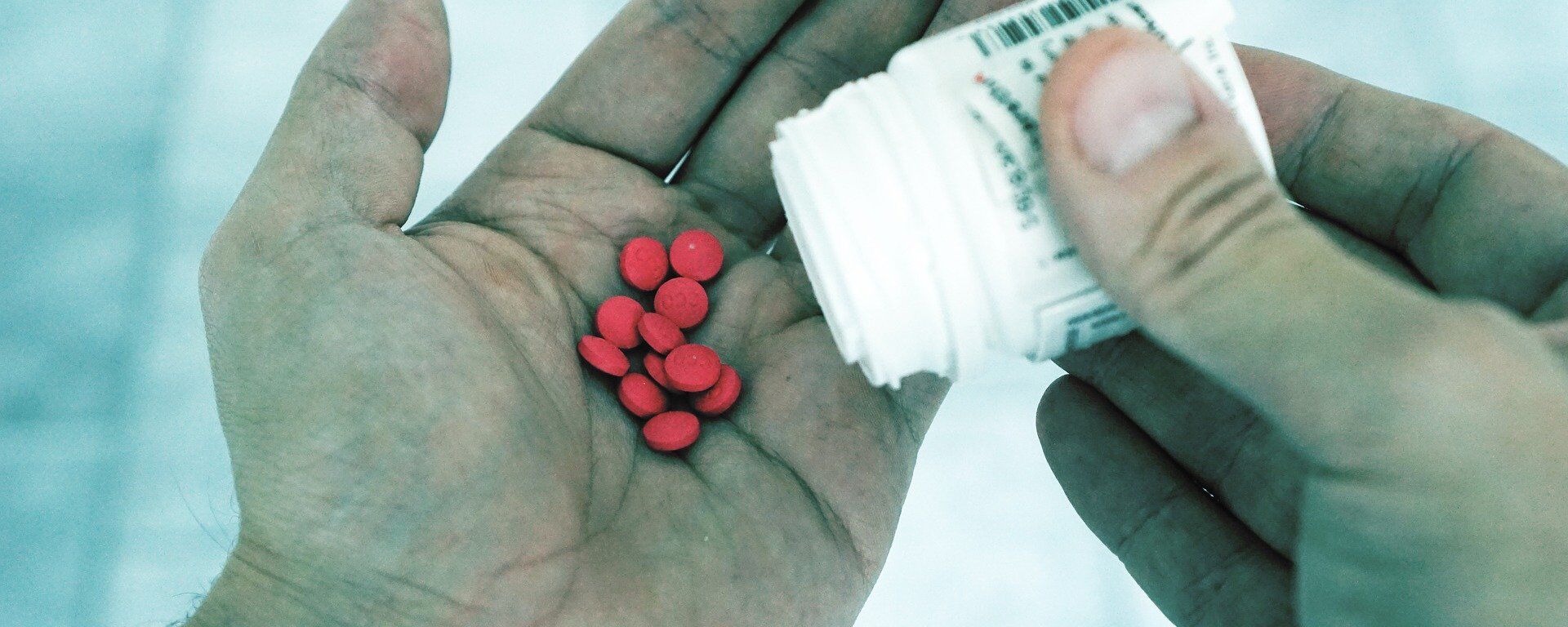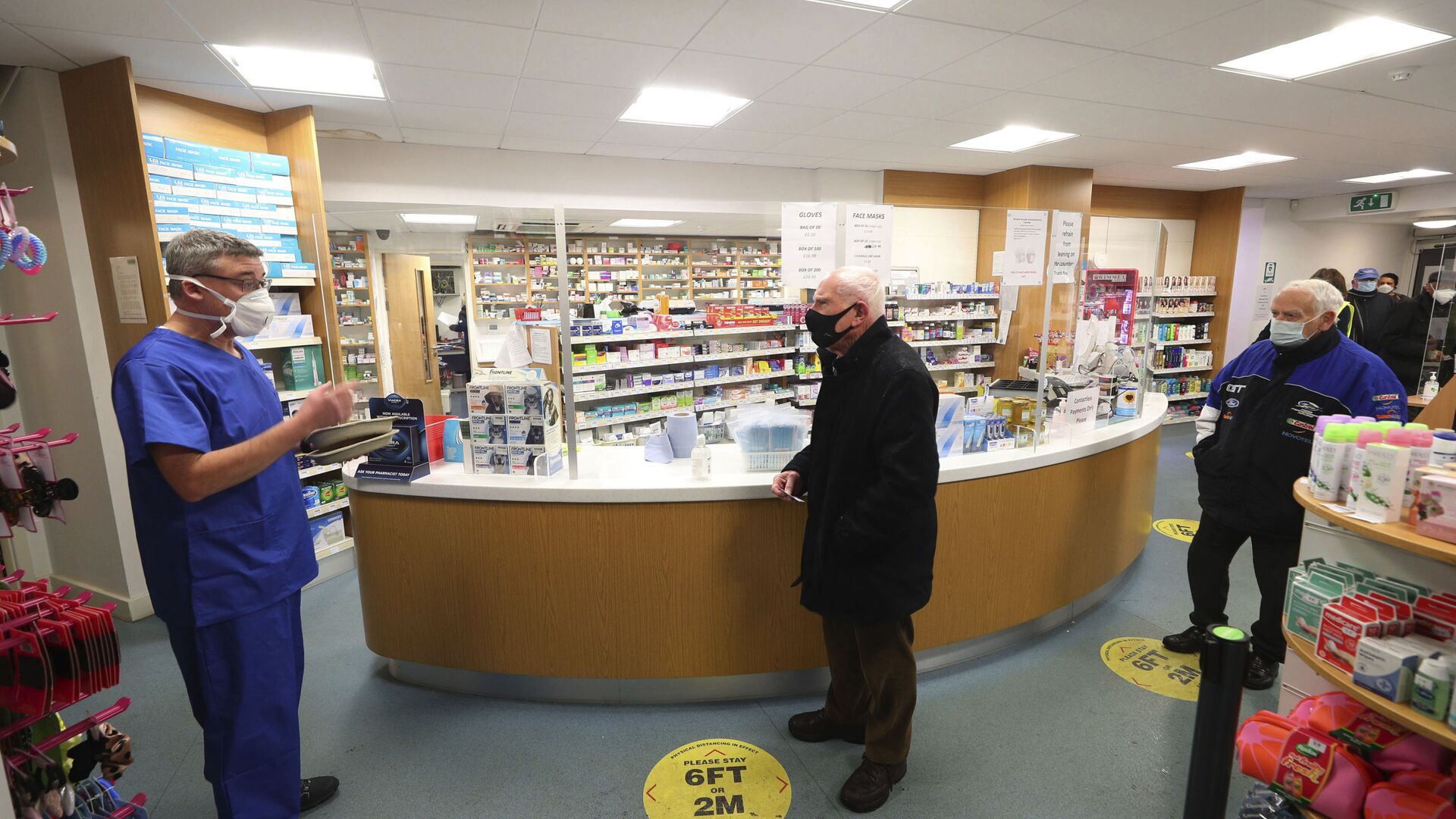https://sputnikglobe.com/20220811/whats-behind-medicine-shortage-in-the-uk-1099485087.html
What's Behind Medicine Shortage in the UK?
What's Behind Medicine Shortage in the UK?
Sputnik International
A recent poll of pharmacists found more than 54 percent of the reported patients being put at risk in the last six months due to shortages of drugs including... 11.08.2022, Sputnik International
2022-08-11T16:07+0000
2022-08-11T16:07+0000
2023-05-28T15:20+0000
great britain
britain
national health service (nhs)
university of exeter
analysis
united kingdom (uk)
https://cdn1.img.sputnikglobe.com/img/07e5/01/0e/1081762682_0:160:3073:1888_1920x0_80_0_0_197a723183a5370b919f4e23e2c0d7f1.jpg
A lecturer in medicine has blamed Britain's exit from the European Union for a shortage of some medicines.Dr. Bharat Pankhania, a senior clinical lecturer at The University of Exeter Medical School, told Sputnik that the recent shortage of hormone replacement therapy (HRT) and some other drugs — including insulin, antibiotics and antidepressants — was thanks to the UK leaving the bloc two years ago."There is a failure of authorities in the United Kingdom to what we call in English, address the elephant in the room," he said.However, the Daily Express reported that the lack of HRT since April this year was caused by a shortage of material imported from the Far East.The academic accused the government of having its head in the sand over the issue amid the leadership contest to replace Boris Johnson as prime minister."Ministers are in denial and do not want to address the big issue, which is our trade with the European Union, including pharmaceuticals, is affected," he reiterated. "They are pretending that it is not an issue. It is an issue and they are not addressing it.""What we really need is for the medical profession, for the pharmaceutical profession, for the other health care workers to have one voice and say it, loud and clear" Pankhania stressed.The senior medic warned that the problem could affect patients "across the board" in the National Health Service (NHS).A survey of 1,562 UK pharmacists for the Pharmaceutical Journal established that more than 54% of respondents said that patients had been put at risk in the last six months due to medicine shortages.“We had to ration it, and this has potentially put patients at risk of vitamin deficiencies,” a pharmacist was cited as saying.In response, a spokesperson for the UK Department of Health and Social Care insisted that they “take patient safety extremely seriously, and […] routinely share information about medicine supply issues directly with the NHS [National Health Service] so they can put plans in place to reduce the risk of any shortage impacting patients, including offering alternative medication.”
https://sputnikglobe.com/20220811/uk-pharmacists-warn-medicine-shortages-put-patients-at-risk-1099473684.html
great britain
britain
united kingdom (uk)
Sputnik International
feedback@sputniknews.com
+74956456601
MIA „Rossiya Segodnya“
2022
James Tweedie
https://cdn1.img.sputnikglobe.com/img/07e4/08/1c/1080307270_0:3:397:400_100x100_80_0_0_7777393b9b18802f2e3c5eaa9cbcc612.png
James Tweedie
https://cdn1.img.sputnikglobe.com/img/07e4/08/1c/1080307270_0:3:397:400_100x100_80_0_0_7777393b9b18802f2e3c5eaa9cbcc612.png
News
en_EN
Sputnik International
feedback@sputniknews.com
+74956456601
MIA „Rossiya Segodnya“
Sputnik International
feedback@sputniknews.com
+74956456601
MIA „Rossiya Segodnya“
James Tweedie
https://cdn1.img.sputnikglobe.com/img/07e4/08/1c/1080307270_0:3:397:400_100x100_80_0_0_7777393b9b18802f2e3c5eaa9cbcc612.png
great britain, britain, national health service (nhs), university of exeter, united kingdom (uk)
great britain, britain, national health service (nhs), university of exeter, united kingdom (uk)
What's Behind Medicine Shortage in the UK?
16:07 GMT 11.08.2022 (Updated: 15:20 GMT 28.05.2023) A recent poll of pharmacists found more than 54 percent of the reported patients being put at risk in the last six months due to shortages of drugs including insulin, anti-depressants and antibiotics.
A lecturer in medicine has blamed Britain's exit from the European Union for a shortage of some medicines.
Dr. Bharat Pankhania, a senior clinical lecturer at The University of Exeter Medical School, told Sputnik that the recent shortage of hormone replacement therapy (HRT) and some other drugs — including insulin, antibiotics and antidepressants — was thanks to the UK leaving the bloc two years ago.
"There is a failure of authorities in the United Kingdom to what we call in English, address the elephant in the room," he said.
"Trade between the European Union and the United Kingdom is affected and it is affecting supplies of essential radio isotopes as well as antibiotics and cancer treatments," Pankhania said, "As well as other medicines. And this is a consequence of Brexit."
However, the Daily Express reported that the lack of HRT since April this year was caused by a shortage of material imported from the Far East.
The academic accused the government of having its head in the sand over the issue amid the
leadership contest to replace Boris Johnson as prime minister.
"Ministers are in denial and do not want to address the big issue, which is our trade with the European Union, including pharmaceuticals, is affected," he reiterated. "They are pretending that it is not an issue. It is an issue and they are not addressing it."
"What we really need is for the medical profession, for the pharmaceutical profession, for the other health care workers to have one voice and say it, loud and clear" Pankhania stressed.

11 August 2022, 08:40 GMT
The senior medic warned that the problem could affect patients "across the board" in the
National Health Service (NHS).
"They are across a range of ailments. They range from patients who need radio isotopes for cancer therapy," Pankhania said. "There are patients who need insulin for diabetes. And then there are patients who also need, for example, hormone replacement therapy".
A survey of 1,562 UK pharmacists for the Pharmaceutical Journal established that more than 54% of respondents said that patients had been put at risk in the last six months due to medicine shortages.
“We had to ration it, and this has potentially put patients at risk of vitamin deficiencies,” a pharmacist was cited as saying.
In response, a spokesperson for the UK Department of Health and Social Care insisted that they “take patient safety extremely seriously, and […] routinely share information about medicine supply issues directly with the NHS [National Health Service] so they can put plans in place to reduce the risk of any shortage impacting patients, including offering alternative medication.”




